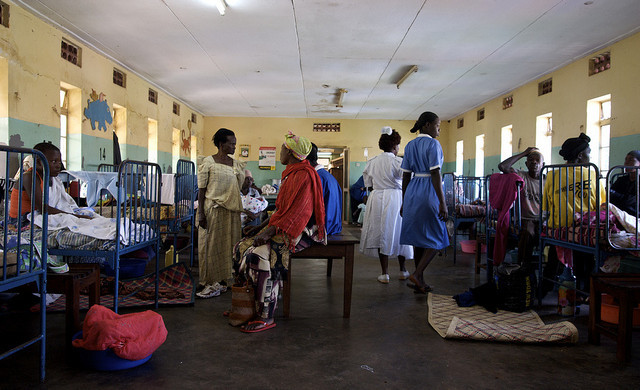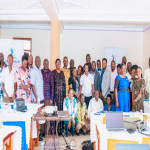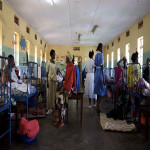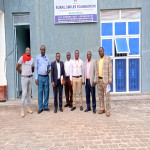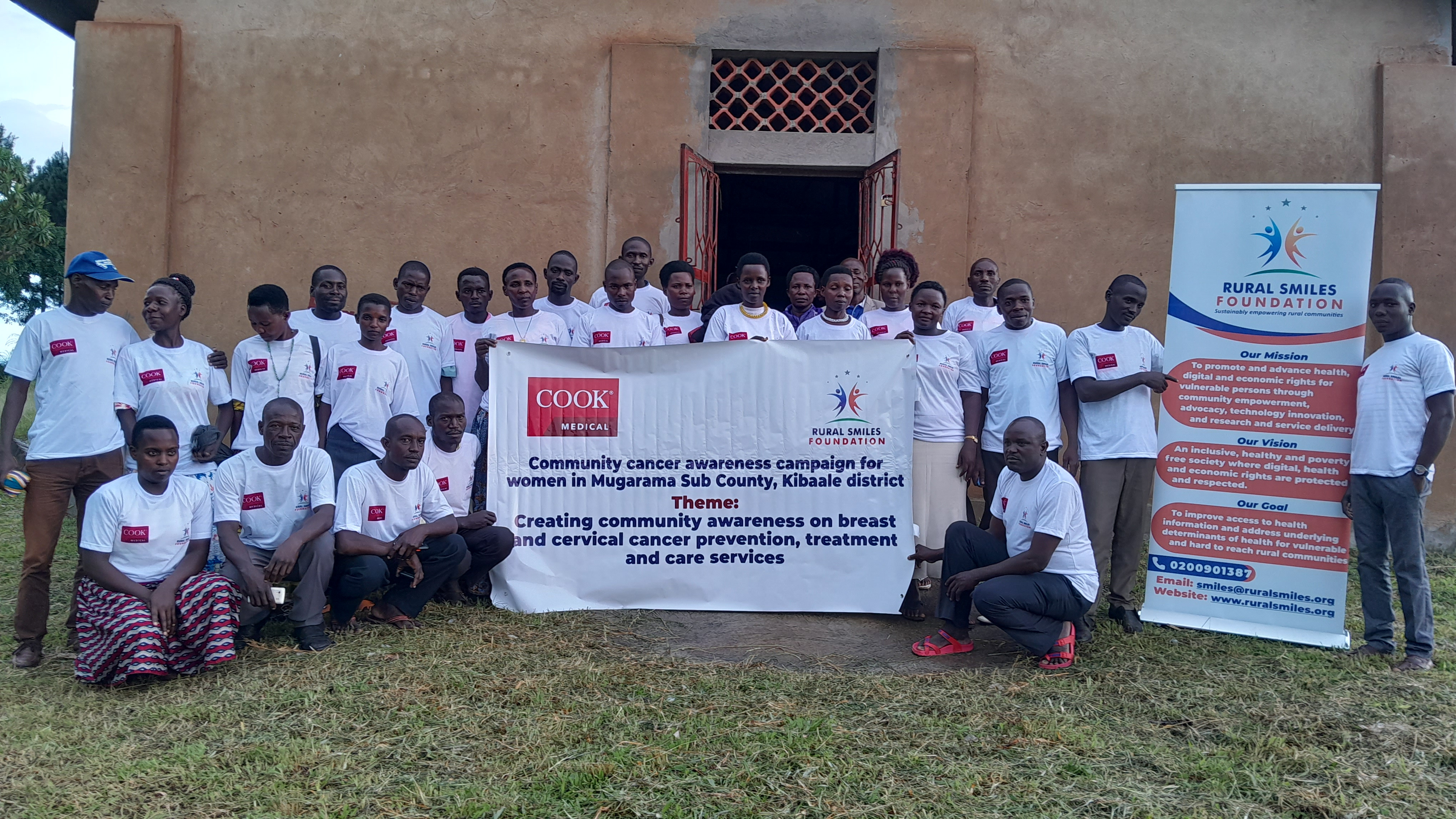
Cervical cancer is a devastating and widespread global health issue, but the situation in rural Uganda is distinct, shaped by cultural misconceptions and a severe lack of resources. As the leading cause of cancer deaths among women in Uganda (Nakisge et al, 2017), it is crucial that we take action against cervical cancer NOW.
The Rural Smiles Foundation is proud to unveil a new healthcare initiative, aimed at significantly reducing cervical cancer incidence and mortality rates in the Kibaale District, Uganda. This ambitious campaign is driven by our rural community ambassadors, who laid the groundwork for the programme at the end of last year, in collaboration with local health officials and women’s groups.
Safe Sexual Practices
Cervical Cancer is non-communicable, meaning that it can not be spread from person to person. However, women become more vulnerable to the disease following infection with the HPV virus, a common sexually transmitted infection. For this reason, protective sexual behaviours, including the use of barrier devices, are vital to reducing cervical cancer incidence (NHS, 2019).
We encourage men to take an active role in fostering safe and respectful sexual experiences. Tragically, some women diagnosed with cervical cancer experience abuse or neglect from those they are closest to, due to the stigma surrounding female sexuality, which is often linked to cervical cancer. (Song et al, 2024).
Empowering Women
At the core of our approach is female empowerment. Our ambassadors hope to facilitate eye-opening conversations that emphasise medical treatment as a fundamental right and stress the vital role of community support in recovery. Empowerment is a collective responsibility, so we aim to engage a diverse range of individuals in our efforts. We plan to provide support through personalised home visits, alongside peer groups where women can safely share their experiences. Finally, through inviting survivors to serve as community ambassadors and speak at local events, we hope to inspire those currently battling cervical cancer.
Promoting Education
Did you know that cervical cancer care, including both screening and treatment, is available at little or no cost in Uganda? However, many women refrain from seeking medical help due to negative attitudes and a lack of awareness. Compounding this issue are capacity challenges, such as resource shortages and a lack of trained professionals. We aim to aid capacity-building in the Kibaale district by training medical professionals to enhance their skills in cervical screening and treatment, while also providing necessary resources, including educational materials, screening kits and protective equipment.
What makes cervical cancer particularly hard to tackle ?
Cervical cancer is uniquely challenging as symptoms can be difficult to spot. A study conducted across rural and urban communities in Uganda revealed a worrying trend, with participants wrongly ascribing cervical cancer symptoms to their personal medical history (Mwaka et al, 2021; 5). For example, a woman living in rural Uganda had put her unusual bleeding down to a past miscarriage. Early detection of cervical pre-cancer (abnormal cell changes that can develop into cancer), allows for “see and treat” procedures that tackle the disease through the direct removal of affected cells. Unfortunately, treatment becomes more expensive and invasive as the cancer develops (Cárdenas-Turanzas et al, 2005). For this reason, widespread detection and screening services are crucial.
Our educational programmes aim to cover all relevant aspects of the disease, including safe sexual practices, alarming symptoms, and the significance of regular screening. Our community ambassadors have worked alongside local partners to design culturally relevant, educational content to be shared through community outreach events and radio programmes.
Looking to the future
We firmly believe that the efforts of our dedicated community networks can play a crucial role in the battle against cervical cancer in the Kibaale district.
If you would like to help us advance this initiative beyond the initial planning stage, we invite you to consider donating. (https://www.globalgiving.org/fundraisers/addressing-cervical-cancer-in-the-kibaale-district-of-u/ ). A donation of just £19 would supply cervical cancer education materials for ten women, while £39 would cover the costs of potentially life-saving cervical cancer screenings for two women.
At the Rural Smiles Foundation, we believe that every woman deserves the highest level of healthcare, regardless of her circumstances. We hope that beyond its immediate impact, the initiative will provide an example to national policy-makers, and prompt indispensable change in public health moving forward.
References
Mwaka, A.D. et al. (2021) ‘Symptom appraisal, help-seeking and perceived barriers to healthcare seeking in Uganda: An exploratory study among women with potential symptoms of breast and cervical cancer’, BMJ Open, 11(2). doi:10.1136/bmjopen-2020-041365.
Song, G. et al. (2024) ‘Cultural shifts: An examination of cervical cancer stigma across age groups in the Caribbean’, JNCI Cancer Spectrum, 8(5). doi:10.1093/jncics/pkae075.
Cárdenas-Turanzas, M., Follen, M., Benedet, J.-L. and Cantor, S.B. (2005). See-and-treat strategy for diagnosis and management of cervical squamous intraepithelial lesions. The Lancet Oncology, 6(1), pp.43–50. doi:https://doi.org/10.1016/s1470-2045(04)01712-7.
NHS (2019). Causes - Cervical cancer. [online] NHS. Available at: https://www.nhs.uk/conditions/cervical-cancer/causes/.
Nakisige, C., Schwartz, M. and Ndira, A.O. (2017). Cervical cancer screening and treatment in Uganda. Gynecologic Oncology Reports, [online] 20(3), pp.37–40. doi:https://doi.org/10.1016/j.gore.2017.01.009.
